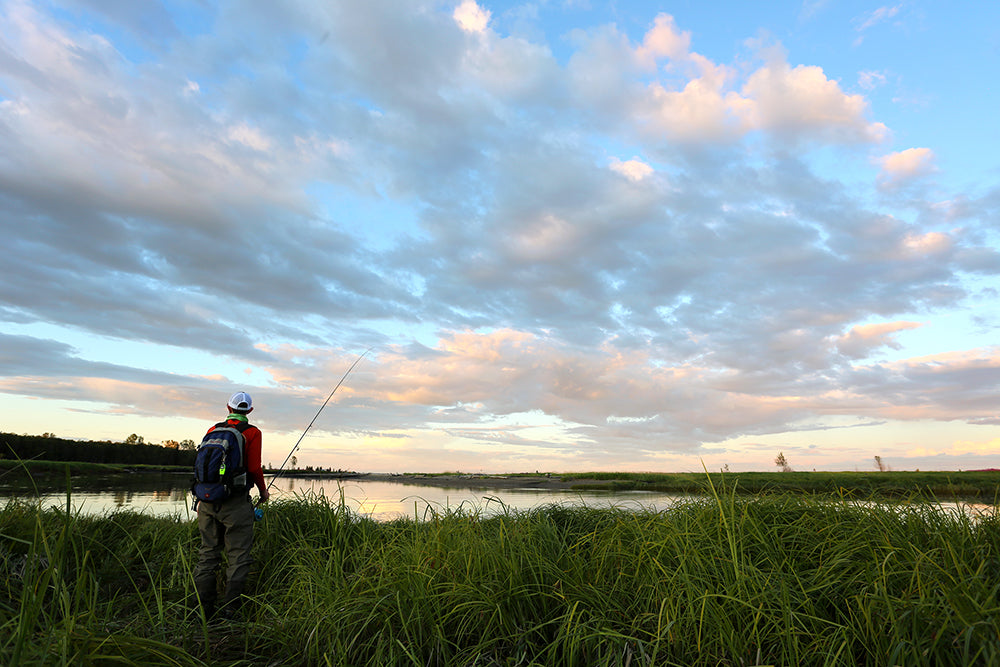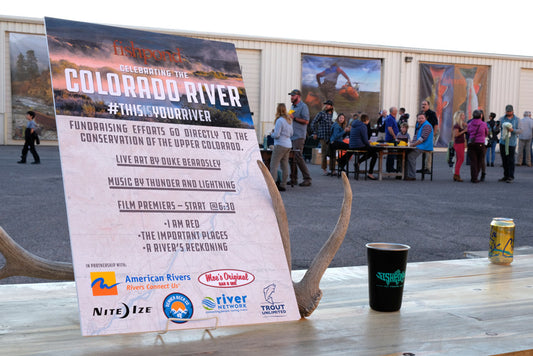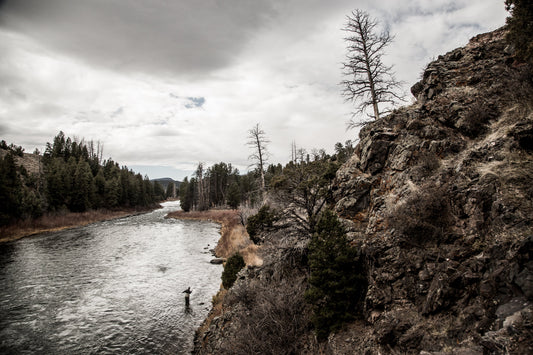Kate has been guiding sport anglers in Bristol Bay for 10 seasons along with her partner Justin Crump. Scott has been working on the campaign to protect Bristol Bay from the proposed Pebble Mine for just as long. Below is Kate’s personal account of this season with updates on the fight to protect Bristol Bay woven in by Scott. Visit Save Bristol Bay to submit your comment to the EPA right now.
May 15, 2017: Location: Oregon
I sure hope the barge makes it, anxiously looking at Justin for reassurance. It’s mid-May and yesterday we dropped off a new custom jet boat and a large older pickup truck heading for Bristol Bay. Expecting an arrival early June, our boat and truck were loaded with non-perishable food and items to last us four months, enough fishing gear to outfit many clients, and with hope for an outstanding season of happy guests and many healthy fish.
Along with anticipation for salmon to return to Bristol Bay, I’m really hoping our boats and truck arrive on time so we can guide sport fishing guests coming to experience the wilds of southwest Alaska. And I’m anxious for our new endeavor, setting up our own camp on the Nushagak River for the first few weeks of the season.
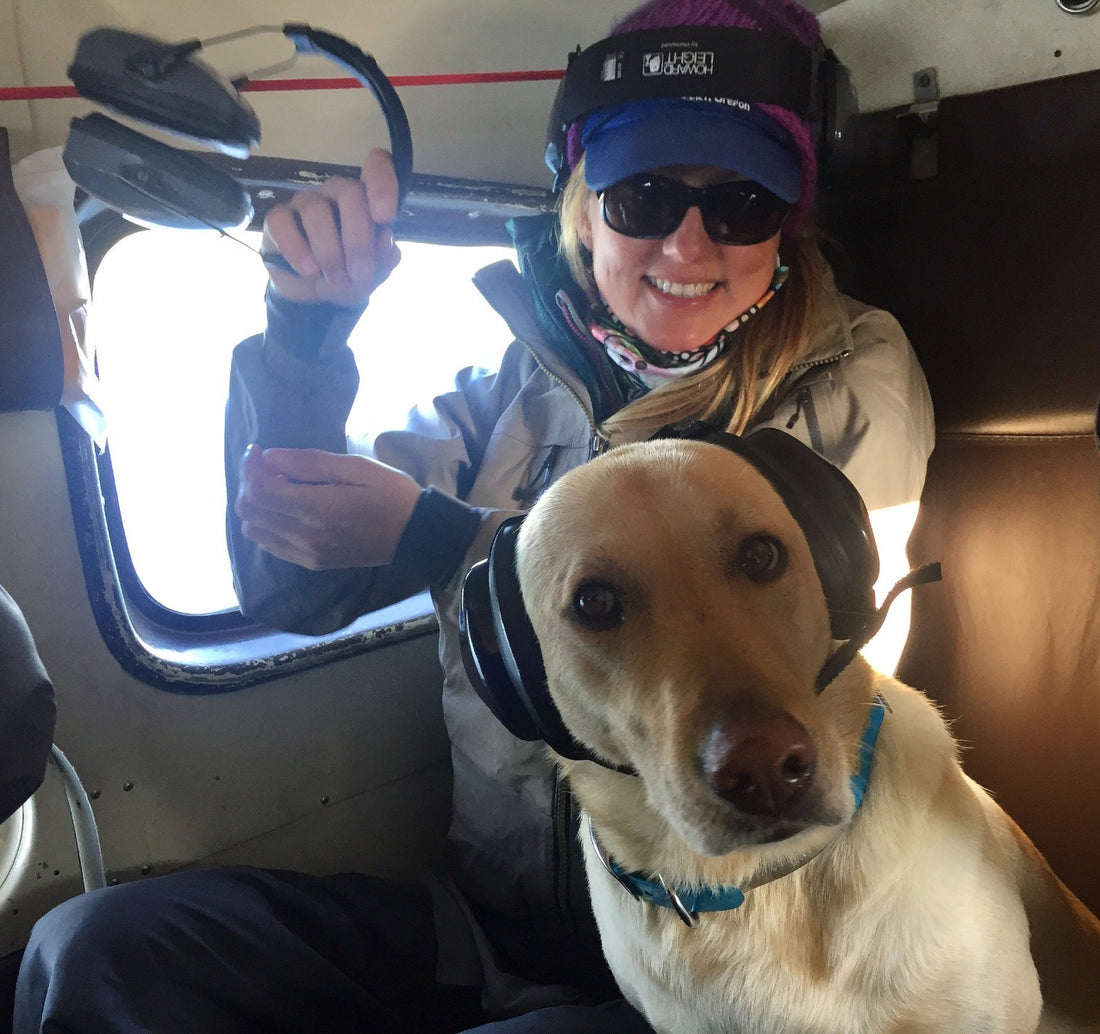
[The Nushagak River is one of two Bristol Bay drainages – the Kvichak is the other – whose headwaters originate within the area of the proposed Pebble Mine. The U.S. Environmental Protection Agency in 2014 proposed a set of common-sense restrictions on disposal of mine waste in those two drainages in order to protect the habitat which supports the most productive wild salmon fishery on the planet, the 14,000 jobs and $1.5 billion annual economic contribution from the fishery, and a subsistence way of life that has gone on for millennia. These protections were placed in limbo while Northern Dynasty Minerals, the company behind Pebble, tied up the EPA in court. While Kate and all the other Bristol Bay lodges and outfitters were getting ready for their season, the EPA – now under the leadership of Administrator Scott Pruitt – was busy striking a backroom deal to settle the lawsuit with Northern Dynasty. On May 1, literally on the same day Pruitt met with executives from Northern Dynasty, he instructed the agency to begin work to undo the 2014 proposed protections for Bristol Bay, breathing new life into a horrendous idea.]
June 16, 2017: Location: Somewhere in the middle of Bristol Bay
I’m never doing this again, I think, as Justin, Geoff, and I barrel over three foot waves in our two open skiffs. The tide is coming in hard - along with a solid southwest wind. As we dodge the commercial fishing fleet and giant barges also heading across Bristol Bay on the tide, a cold rain pelts our faces. My thick life jacket is barely keeping my core warm as rain pours off my sleeves. Our destination, the Nushagak River, holds so much promise to fishing guides and guests across Bristol Bay and tomorrow morning seven guests will arrive on a float plane to fish what is commonly known as Alaska’s most productive king salmon fishery. We have to cross the open bay, run many miles upriver, set up a new camp, and get into our sleeping bags in fourteen hours. We waited days for good calm seas with perfect wind and since neither came, we crossed anyway.
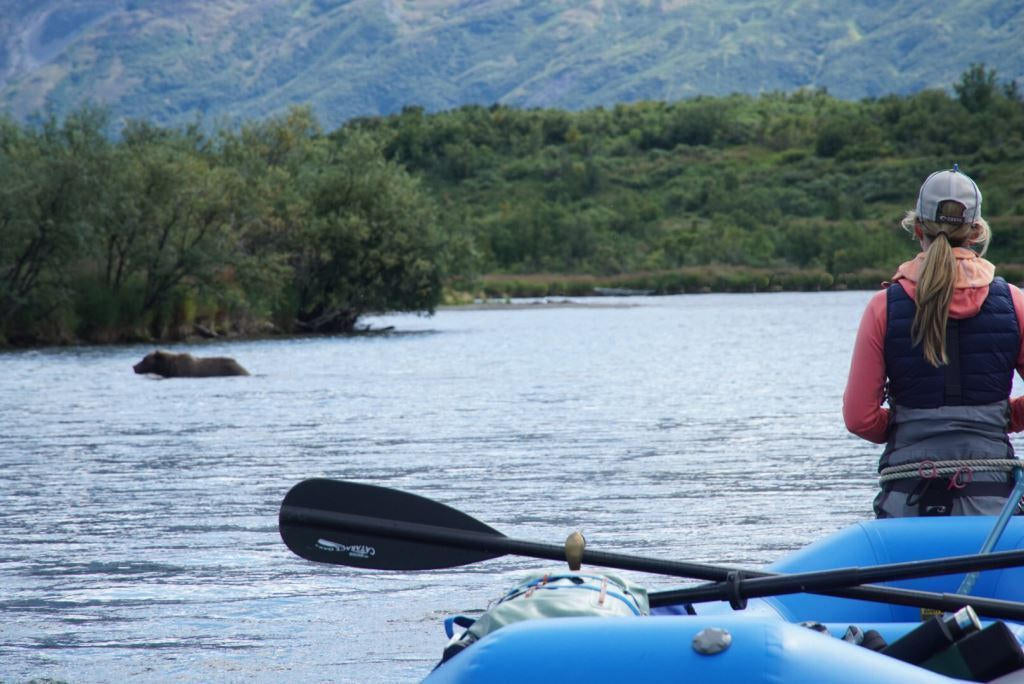
July 3, 2017: Location: Nushagak River below Portage Creek
We looked up from the freshly grilled salmon we were shoveling into our mouths at lunch to see every boat passing in front of our camp hooked up with hard-fighting, chrome-bright, fresh from the ocean king salmon in the bright sunny afternoon. During lunch breaks, we noticed huge pushes of sockeye and cast to them from shore. They never stopped coming. The shores deep with chrome sockeye and the main channels running with king salmon seemed like an angler’s salmon dream. Meanwhile, the flood of sockeye hitting the Nushagak Bay exceeded projected numbers day after day. Elders from the local communities had never seen such overabundance of sockeye – boats even sank from too many fish weighing them down on their way to deliver to the processors. And while the fishing sport community questioned the effect on king salmon from the wide open commercial fishing harvest, the commercial fishing industry enjoyed one its best sockeye seasons in the past 20 years.
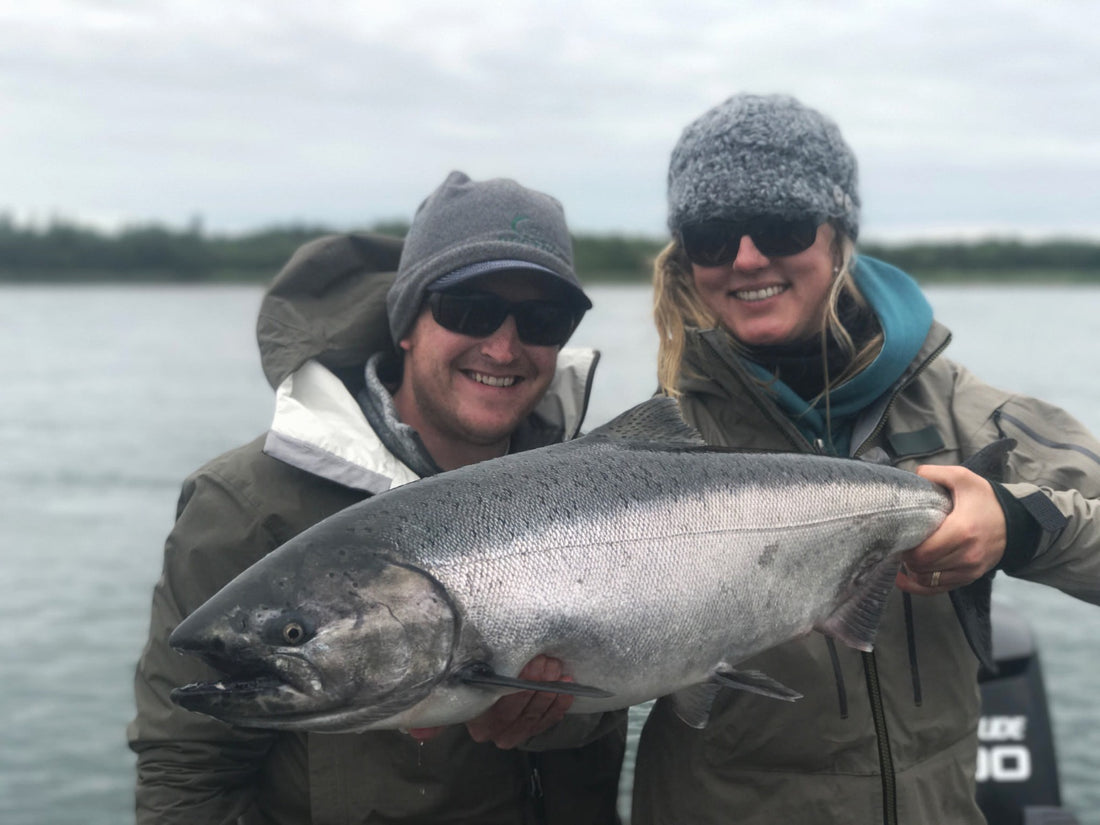
[The 2017 sockeye run in Bristol Bay was a historically good one, with 56.5 million fish returning. The total commercial harvest was 37.7 million fish – meaning 18.8 million sockeye traveled upstream to spawn, die, and ultimately create the next generation of wild Bristol Bay sockeye. As Kate was guiding anglers to king salmon on the Nushagak River, the Nushagak returns of sockeye were especially impressive. The Nushagak had two single days where over 1 million sockeye were harvested! The Nushagak sockeye return was a record-setting 19.4 million fish, with a record 11.7 million harvested and 7.7 million of them escaping up river. While sport lodges and outfitters were busy, and commercial and subsistence harvests were winding down, on July 11 the EPA announced it was beginning an official process to undo the proposed restrictions on disposal of mine waste in the Nushagak and Kvichak River watersheds. Talk about a kick in the gut – What should have been a celebration of an unbelievable season provided by the incredible renewable salmon resource of Bristol Bay now had a cloud hanging over its future once again.
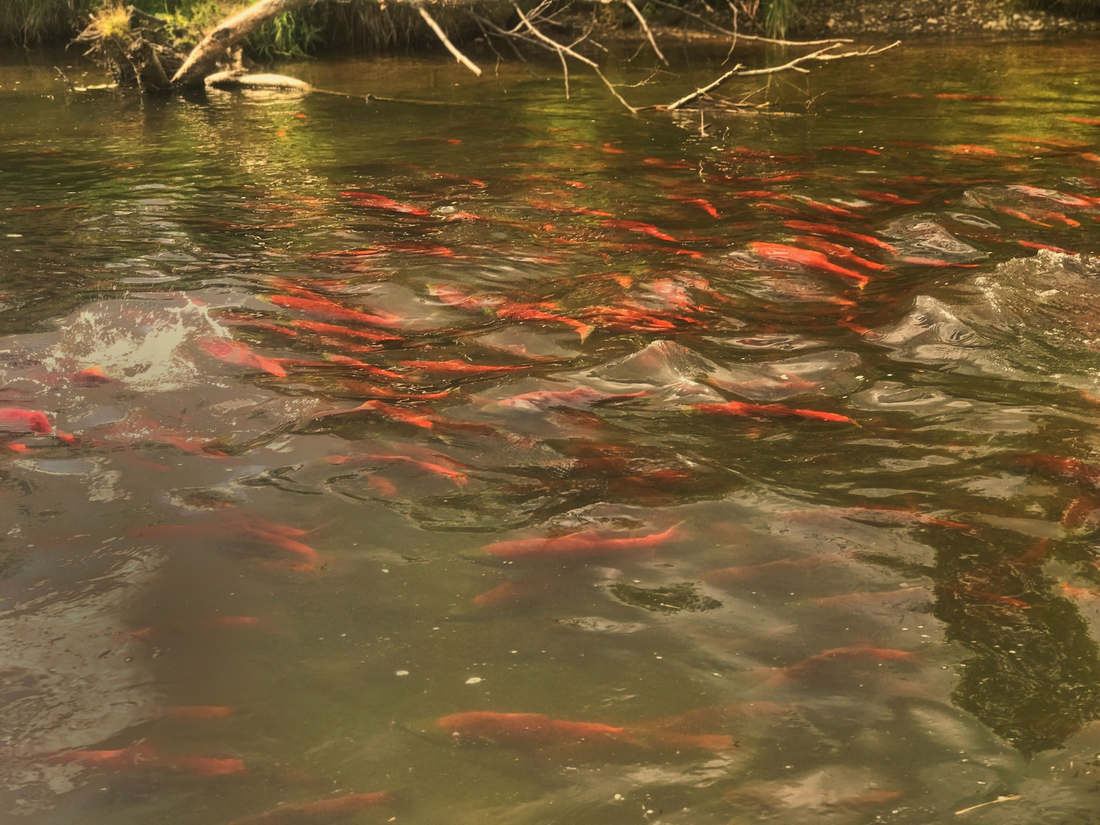
September 17, 2017: Location: Naknek River in Katmai National Park
I saw a lonely king salmon yesterday and was surprised at his power, although it was dwindling. His deep red body slowly decomposing as he hung on to the last bits of life. He’s participated in the journey and contributed to the perpetuation of his species by spawning with a female. I’m sure he’s days away from passing on and feeding a hungry eagle, a wily wolf or massive brown bear, and hopefully many large trout. Either way, the whole place benefits and I’m grateful to this fish, to this ecosystem, and for the health of Bristol Bay. I look up to see my guest wide-eyed as a giant rainbow trout jumps into the air on the end of her line. Looks like I’ve got some netting to do.
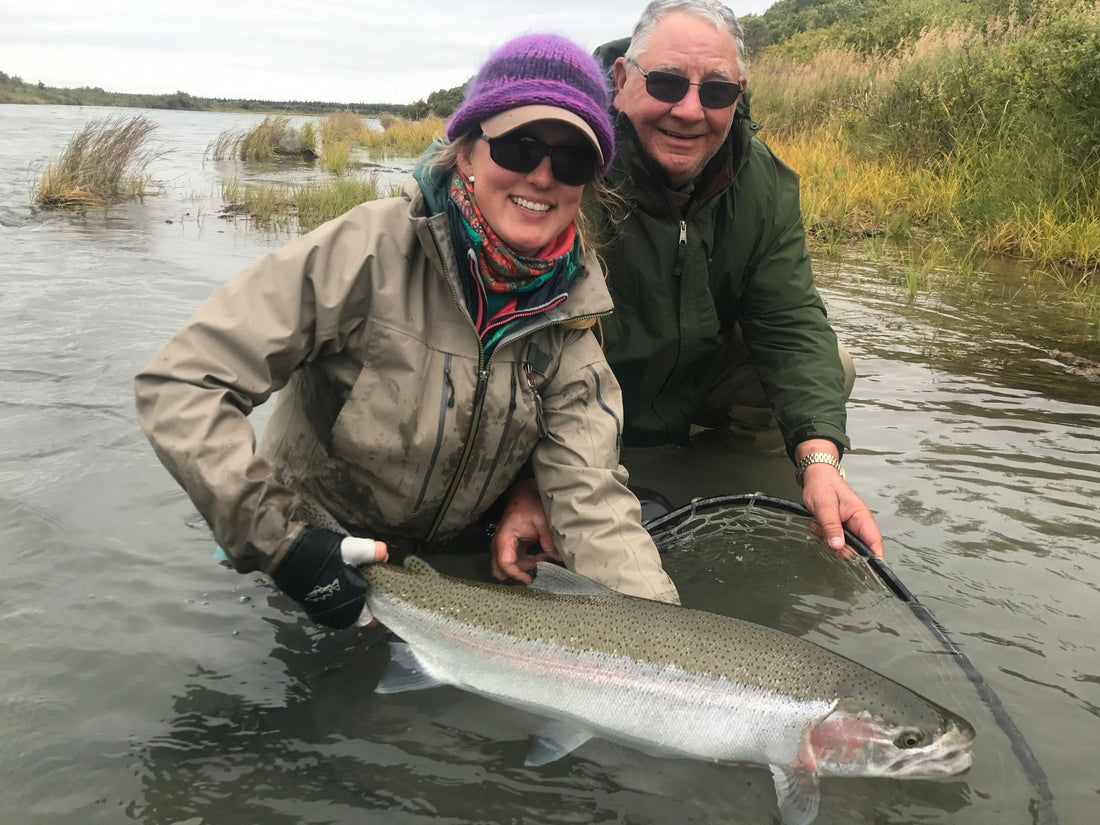
[Pebble Mine is the wrong idea in the wrong place. Always has been. Always will be. FISH FIRST – PEBBLE NEVER. Thanks for fighting with us for so many years, but we need your help again. Tell the EPA not to remove the protections for Bristol Bay - deadline is October 17. ]
Header Photo: @davemccoyewa all other photos from @kalamityk8

